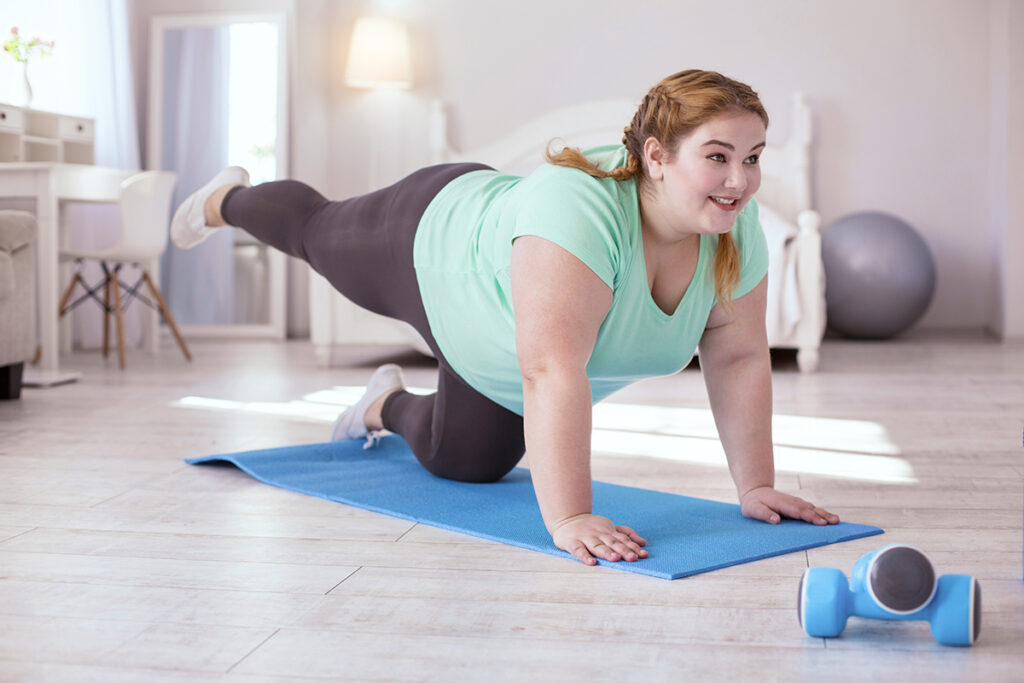Loving yourself is a simple concept, but you may find it challenging to put into daily practice. Unfortunately, many women report being unhappy with their bodies, resulting in unhealthy habits like extreme dieting and eating disorders such as bulimia. The “thin-at-all-costs” mindset that dominates modern American culture is harmful, and perpetuates a myth that women must achieve impractical proportions to be attractive.
Body positivity is a growing movement that aims to help people develop a healthier, more realistic self-image. Instead of feeling guilty for eating certain foods or hating what you see when you look in the mirror, what if you could appreciate yourself at any size? It might seem like a radical idea, but it’s worth adopting. Here are five ways you can practice body positivity in your daily life.
1. Don’t Equate Thinness With Healthiness
Many women fixate solely on the number on the scale. They may obsessively count calories or punish themselves with grueling workouts, rather than eating healthy, balanced, satisfying meals and getting active in ways they enjoy. The goal of nutrition and exercise isn’t to make it to an “ideal” weight that may not be attainable (or sustainable) for your body type. It’s to fuel your energy and foster a healthier lifestyle at any size or shape.
2. Honor Your Body
Instead of thinking about how much you weigh or nitpicking about all the flaws you’d like to change, think about all the incredible things your body does, and every experience it’s helped you enjoy. The fact that it’s good for you and it feels great to move should be your reasons to exercise — not burning off a targeted number of calories or looking like a fitness model.
3. Reward Yourself
Let go of the notion that you need to be perfect. Everyone makes mistakes, and if you push yourself too hard, you’ll only end up stressed and disappointed. Embrace setbacks as learning opportunities, and be sure to treat yourself when things go well. Acknowledge everything from small successes to significant triumphs with rewards – don’t ever feel like you don’t deserve it.
4. Change Your Inner Monologue
When was the last time you told yourself, “Well done, great job”? Paying yourself compliments is one way to stay motivated, but to do so, you’ll need to silence your inner critic. When you catch yourself using negative self-talk, replace it with a happy thought about something you’ve done well. Write down self-affirming phrases and put them in prominent locations throughout your home. Over time, you’ll start to internalize these beneficial, confident thoughts.
5. Stop Comparing Yourself to Others
Humans come in all shapes and sizes, and no matter how much you might try, you can’t change the height, skin color and body type your genetic makeup predisposed you to have. Instead of trying to be something you’re not, focus on becoming the best possible version of yourself. Though body positivity influencers have made some inroads on Instagram and other social media platforms, steer clear of social media if you notice it’s starting to take a toll on your mental well-being and self-image.
Love Who You Are
Body positivity means embracing the notion that you are more than your clothing size or the number you see when you step on the scale. It’s about realizing that women are beautiful, confident and capable of doing anything they put their minds to.
If you’re ready to make a brand-new start in life, contact us to explore your options for accredited women’s-only addiction recovery in Prescott, Arizona. We can help you move beyond substance abuse to a fulfilling sober lifestyle.



